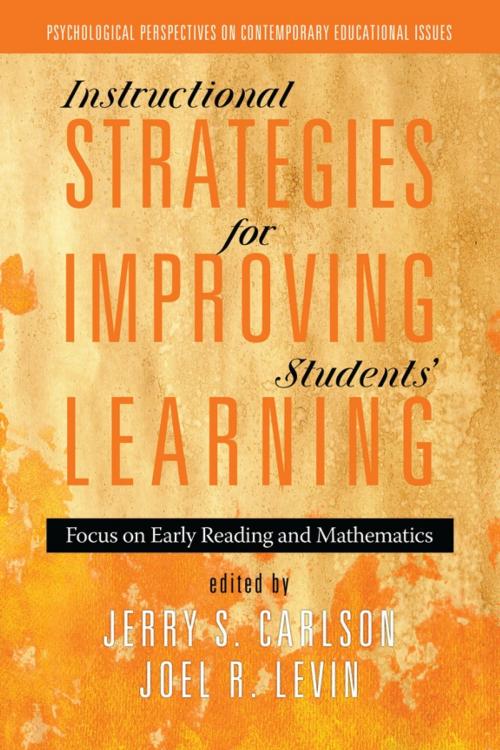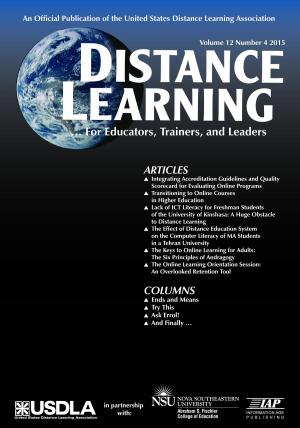Instructional Strategies for Improving Students' Learning
Focus on Early Reading and Mathematics
Nonfiction, Reference & Language, Education & Teaching, Elementary, Teaching, Teaching Methods| Author: | ISBN: | 9781617356315 | |
| Publisher: | Information Age Publishing | Publication: | January 1, 2012 |
| Imprint: | Information Age Publishing | Language: | English |
| Author: | |
| ISBN: | 9781617356315 |
| Publisher: | Information Age Publishing |
| Publication: | January 1, 2012 |
| Imprint: | Information Age Publishing |
| Language: | English |
The twin objectives of the series Psychological Perspectives on Contemporary Educational Issues are: (1) to identify issues in education that are relevant to professional educators and researchers; and (2) to address those issues from research and theory in educational psychology, psychology, and related disciplines. The present volume, consisting of two focal chapters, commentaries, and final responses targets instructional strategies for improving students’ learning in two of the traditional “three R” areas, reading and ?rithmetic (mathematics), in the elementary school grades. The focal chapters in those two skill areas are written by leading contributors to the reading and mathematics research literatures, Cathy Collins Block for the reading section and Douglas Clements and Julie Sarama for the mathematics section. Few would dispute the essentiality of these two curricular domains in laying the foundation for the development of students’ competencies in a vast array of academic disciplines in both the in and outofschool years that lie ahead. The present volume is intended for practitioners and researchers who are seeking the latest instructional researchbased strategies for improving students’ early reading and mathematics performance.
The twin objectives of the series Psychological Perspectives on Contemporary Educational Issues are: (1) to identify issues in education that are relevant to professional educators and researchers; and (2) to address those issues from research and theory in educational psychology, psychology, and related disciplines. The present volume, consisting of two focal chapters, commentaries, and final responses targets instructional strategies for improving students’ learning in two of the traditional “three R” areas, reading and ?rithmetic (mathematics), in the elementary school grades. The focal chapters in those two skill areas are written by leading contributors to the reading and mathematics research literatures, Cathy Collins Block for the reading section and Douglas Clements and Julie Sarama for the mathematics section. Few would dispute the essentiality of these two curricular domains in laying the foundation for the development of students’ competencies in a vast array of academic disciplines in both the in and outofschool years that lie ahead. The present volume is intended for practitioners and researchers who are seeking the latest instructional researchbased strategies for improving students’ early reading and mathematics performance.















